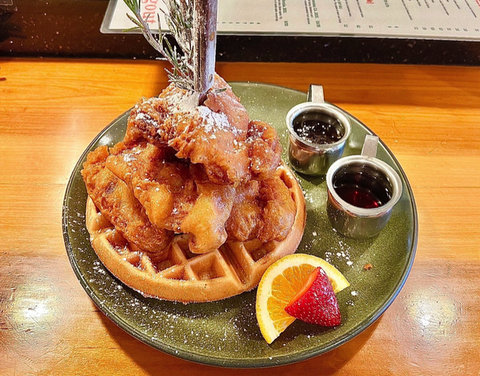08 Dec Composting Program Expands to Richmond Businesses
Nancy Deville, The CC Pulse
A new weekly curbside service is helping Richmond businesses be a bit greener without the hassle.
Richmond Sanitary has launched a commercial food scrap collection program to pick up scraps from businesses in Richmond, San Pablo, El Sobrante, Pinole, Hercules and unincorporated West Contra Costa County. Under the program, businesses collect food waste like stale bread, chicken bones, coffee grinds and produce along with food soiled paper products and place them in large green bins on the curb for pickup by sanitation workers.
The program is an expansion of the residential food scrap program that launched 2 years ago, and will soon be expanding from collection every other week to weekly.
Food collected from both businesses and residences are composted at the West Contra Costa County Sanitary Landfill, just off Richmond Parkway. The material is eventually converted into a rich compost material, which can be used to enliven plants, instead of buried in landfills, according to Tristan McHenry, recycling coordinator with Richmond Sanitary.
“Recycling food scraps will extend the life of the landfill, it’s environmentally friendly and can feel good doing the right thing,” he said. “So far participation has been really high and we have about 140 business participating.”
Composting is nature’s process of recycling decomposed organic materials into a rich soil known as compost. By composting food scraps, nutrients are returned to the soil in order for the cycle of life to continue. It’s also a step toward reducing the amount of trash sent to landfills.
A significant step, considering food scraps are the number one material found in landfills. According to the U.S. Environmental Protection Agency, Americans produce more than 34 million tons of food waste, and only 3 percent of that is composted.
Chris Dikes, the kitchen and culinary arts manager at the Richmond based Bay Area Rescue Mission believes turning food scraps into something that can go back into the soil is good for the community.
“It’s pretty beneficial for us because it gives us extra space in our dumpster, and at the same time we’re giving back to mother earth and not just throwing stuff in the landfill,” Dikes said.






No Comments